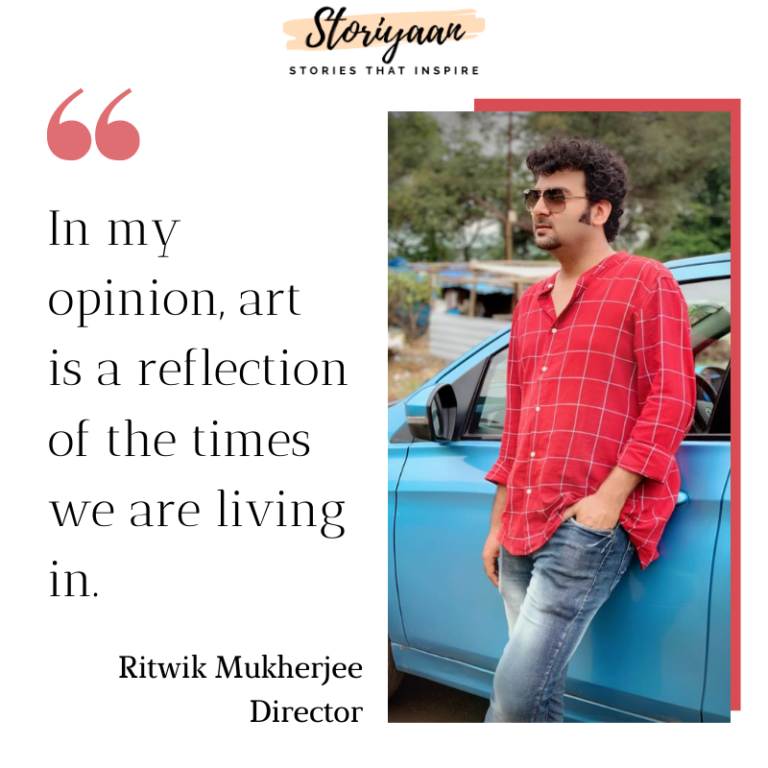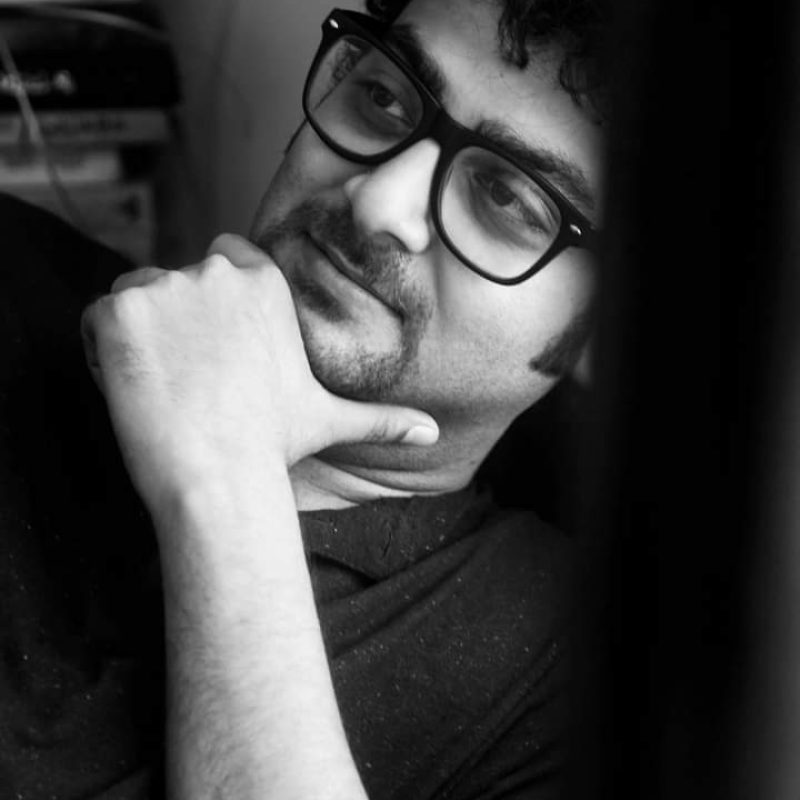Setting himself aside from the league while following his childhood love for storytelling, Ritwik Mukherjee started working as a assistant director in ‘FIR’ and made it big in the field by his directions in the shows such as ‘Happu ki ultan paltan ‘ and ‘May I come in madam. ‘He has also worked on a project with the acclaimed director Anurag Basu.

Interview
Questions and answers
What made you decide to choose to work behind the camera rather than in front of it?
Being a storyteller at heart, since forever, in my school days, I would shut the door of my room pretending to study, but I would make imaginary film scripts and enact them out on my own. I was not attracted towards the enactment part, but instead, how the story moved forward. That’s how I discovered my liking to be behind the camera.
You have worked in the television industry for over a decade. What are some of the changes and the repetitive patterns you have noticed in the industry over time?
Well, a lot has changed craft-wise. So much international exposure has made people see what can be done even on Television. So yes, technically, it is a lot more polished now.
What has not changed, though, are the timelines. We still have to shoot almost 1 episode a day, or else the economics don’t work in the producer’s favour. Also, the West follows a season system even in Television, which is quite unlikely to find in Indian TV shows.
You have assisted numerous veterans of the film industry, including Anurag Basu. Can you tell us a bit about your experience working with him and what you took back from it?
Anurag dada has been a gift for me in my assisting career. I had been directing episodes of shows here and there even before that, but working with him opened up new filmmaking dimensions. For example, the use of lenses in a camera. He used to tell us that it doesn’t matter what camera you use, but what matters is what lens (or magnification) you use to shoot.
Whatever little I could, I apply every day while directing. His music sense, his sense of choreographing a scene, or when to use slow motion, all this and much more has influenced and inspired me. He is just a genius, and there’s never enough you can learn from him.
Could you provide us with a sneak-peak into some memorable moments from the comedy FIR and what makes these memories so unique for you?
It was when Ali Bhai (Ali Asgar) and Naveen JI (Naveen Bawa) were playing a prank on me that both of them were homosexuals and had an illicit affair. This went on for weeks. Whenever I would come to their make-up room to hand over the scripts for the next scene, they would start hugging and kissing each other. I had eventually believed that both of them were gay or at least bisexual, and even though I wasn’t homophobic, it would make me awkward entering their room. After almost 2 or 3 months, I was told that they were just ragging me.
How and when did you first conceive of the idea for Tax-Free, and what was your reaction when it received a special mention at the 7th Delhi Shorts International Film festival?
Tax-free wasn’t conceived; it just happened while I was trying to write a short film about a young college boy proposing to a girl after watching a film in a theatre that was made tax-free by the then government. As far as the reaction is concerned, any recognition is flattering and humbling since these short films by me are made on shoestring budgets/no budgets, and to still be awarded means a lot.
Red Card was based on the Nandigram issue. How did you connect to the issue on a personal level, and now that the region was under section 144 during the 2021 elections, what is your opinion?
I was highly affected by the Nandigram debacle. I plan to make a feature on it someday. Shooting farmers to get hold of their land in the name of industrialization can never be justified. It is just pure genocide and a heinous crime.
About the Bengal elections, forget Nandigram; there should have been a section 144 in the entire state when we witnessed such a chaotic upsurge of COVID cases.
Having been in the industry for so long, you must have come across the existing evils of it too. What are some of the changes that you would like to bring to the industry?
I want the disparity in the pay scale to be reduced. The people working the hardest are paid the least. They come to the set the earliest and leave the set right at the end when everybody’s gone. I’m not belittling the contribution of the people who are highly paid. They have a lot of pressure to deliver too and are perhaps handling huge responsibilities cerebrally, hence their high salaries. But they may not be physically working as hard as the lesser paid crew. All I’m saying is, pay handsomely and pay more to the ones who are paid less. They deserve it.
Nepotism has been a recurring term associated with Bollywood. Have you ever felt yourself being victimized by this problem?
Honestly and fortunately, no, I haven’t been victimized by this problem yet. There is not a lot of nepotism that I’ve heard of in the TV industry. But as soon as I come to the film market and look for a producer for a feature film I want to make, I don’t have it easy. That is when I imagine if I was from a family of directors or actors, I might have at least landed up for script readings and narrations.
You have had the opportunity to learn painting under eminent Maestros. So what is your opinion on Art when it comes to Art for Art's sake and art for life's sake?
In my opinion, Art is a reflection of the times we are living in. It is not independent of society and its people. Commercial artists need to have a conscious responsibility since they will be shown or heard, affecting people. As a commercial artist, while I must create what I like and what I want to create, but at the same time, it should mean something for the people who are looking up to your work.
After having worked so extensively, what would you say makes all your efforts worth it at the end of the day, that is, wherein lies your greatest pleasure in your work?
I’ve received messages on my social media handles from people where they have mentioned that because of the show I’m directing, they have found a reason to watch Television. To hear this is extremely satisfying. It fuels me up to go to shoot the next day and give it my all.
Rapid Fire
a) The first movie ever watched: I can say one of the earliest movies I ever watched, if not the first, and that was ‘Ek Doctor ki Maut’.
b) One reason why Satyajit Ray failed to become mainstream in India outside West Bengal: Primarily because most of his films were in Bengali, and then when he did make a film in Hindi, he was not making conventional love triangle stories.
c) One piece of advice to those who wish to follow a similar career as yours: You have to be burning inside with stories to tell, no two ways about it.
d) Your favourite holiday destination: So far, it is Goa, but I wish to go to Italy for a holiday someday.
e) Commercial films or art films?: Art films, I’ve grown up watching arthouse stuff.

